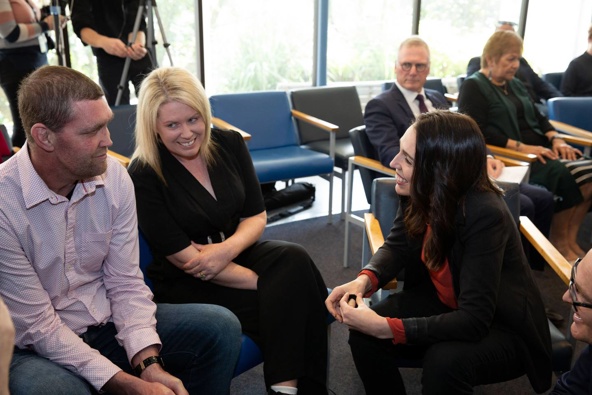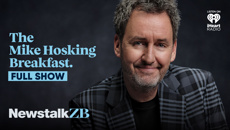Follow
the podcast on

When New Zealand lost Invercargill cancer patient Blair Vining there was anger in the air.
The 39-year-old, with the support of his family, dedicated his last months on Earth to fighting for better cancer care across New Zealand.
His doctor and top oncologist Chris Jackson said this new health system would help save lives like Vining - who was told he was dying of bowel cancer and would have to wait eight weeks for an urgent appointment.
"We have been calling for this for years and finally it's here," Jackson told the Herald.
Yesterday Health Minister Andrew Little unveiled the major changes that will see the country's 20 DHBs culled and replaced with a national health body due to come into effect July next year.
The major announcements are:
- All DHBs will be replaced by one national health body, Health New Zealand to fund and run the health system
• A new Māori health authority will be created, with power to commission health services
• The Ministry of Health will become an advisory and policy agency only
• A new public health agency will be created within the Ministry of Health
While Jackson, who is also the medical director for Cancer Society of New Zealand, said the announcement was welcomed widely across the cancer sector, he said "we should not underestimate the task".
"Having worked at a DHB that was amalgamated with its neighbour that's a very difficult logistic process and to amalgamate all of the DHBs into one unified everything is a bigger task than it sounds at first glance."
New Zealanders would not see changes immediately and it would take a long time to alter care on the ground but in the long term it would hopefully improve the system, he said.
It was a risk but New Zealand could not afford to keep the same system because cancer care has not been good enough, he said.
"It's an opportunity and one we must embrace."
Currently DHBs have a one-year budget, but Jackson said he hoped it would mean the health system could start thinking more long-term.
"If we can get some clarity around the funding pathways that will make it easy in the long run."
Jackson said when it came to accessing high complexity surgery it was impossible and it all varied around the country.
"This should change with the nationalised system."
Since his death, Vining's widow Melissa has work tirelessly to launch a in Southland gathering support from Blair Vining's Epic Journey.
Speaking after the announcement, she said her husband would still be around if we'd had a well-funded health system
However, she said radiation appointments still have a nine-week wait in the south.
Vining said it remains to be seen whether the structure announced today could've saved her husband.
"A centralised system that was well funded would have definitely given Blair a chance and many others.
"We are still seeing people on a weekly basis that are unable to access oncology appointments."
Medics tell her patients are still dying while they wait for treatment.
with text by Emma Russell, NZ Herald
Take your Radio, Podcasts and Music with you









